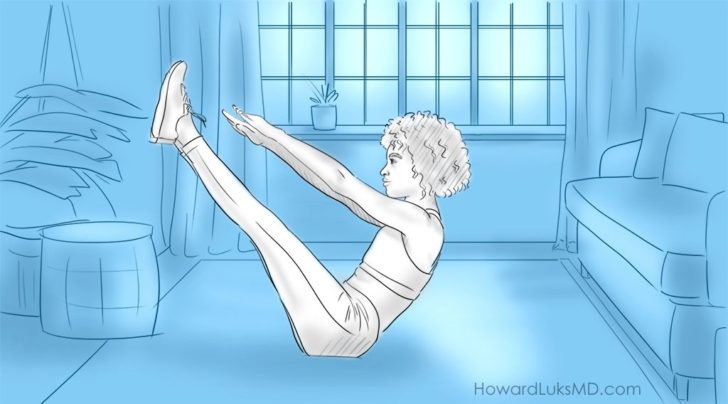
Far too many people are not exercising at the very time it has it could have its greatest payoff. It’s at times like these when exercise is more important than ever. Failing to exercise when you feel anxious, sad, and lonely is like not taking an aspirin when you have a terrible headache. Perhaps if we understood exactly why exercise is so important, it would motivate us to take it as seriously as we should?
Exercise is the best medicine. Aside from social isolation and masks, it is also possible that it’s your best strategy to minimize the risk of having severe issues with COVID19.
Your physical and emotional well-being is more important than ever before. The COVID19 pandemic has a tight grip on this world. People are scared, they’re confined to their homes.
The people at the highest risk for complications from COVID19 are people with obesity, high blood pressure, diabetes, heart disease, and compromised immune systems. It is more critical than ever to prioritize our health and well being. During times like these, we easily adopt unhealthy sedentary habits. However, with a little effort, we can use times like these to create new, healthier habits. Exercise will directly affect and improve all the aforementioned risk factors associated with a higher risk of severe COVID19 illness.
Exercise impacts our weight, our glucose metabolism, our sleep, blood pressure, and the function of our immune system. You see… the best medicine! But how does exercise do this?
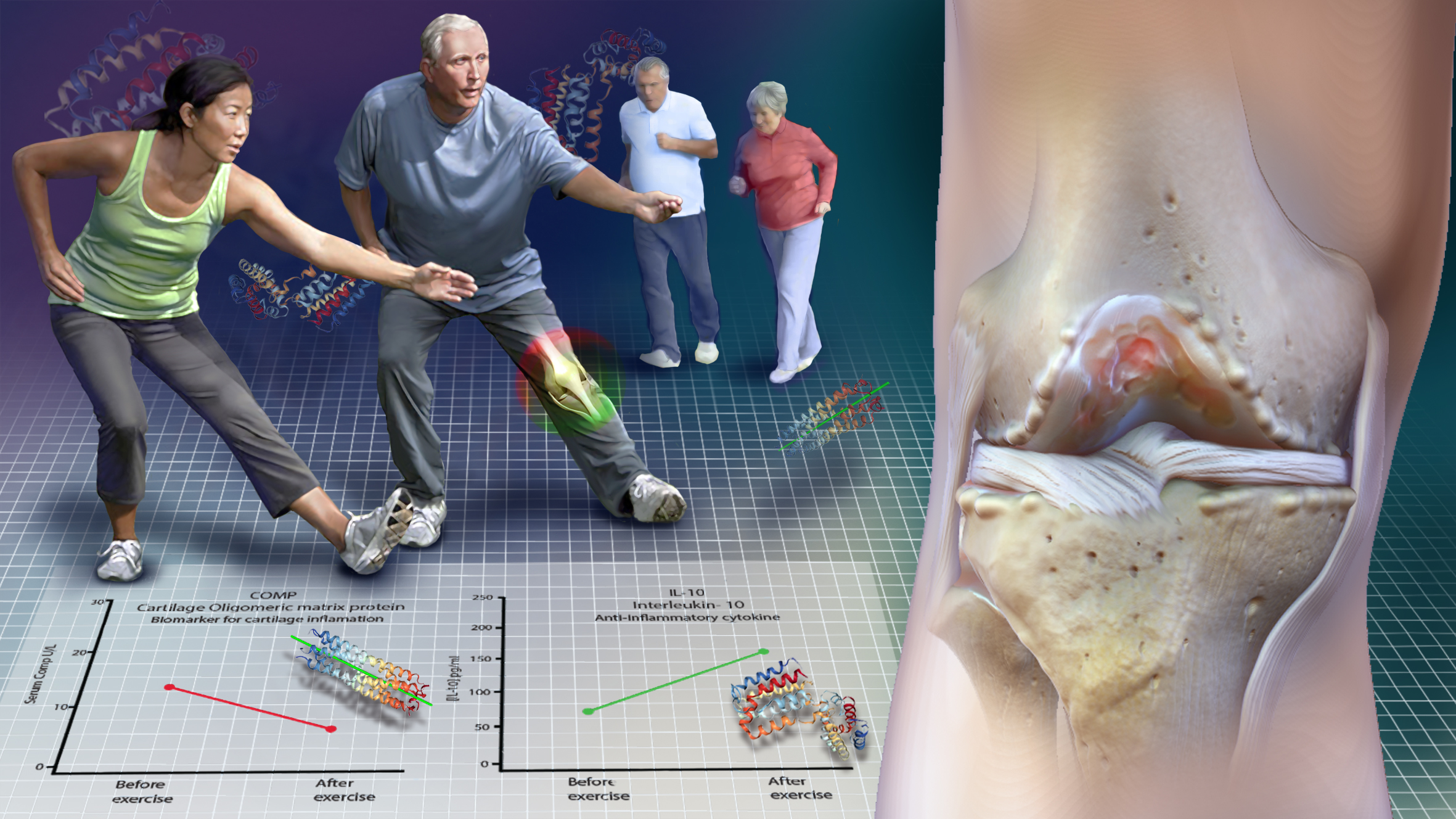
Exercise and your immune system:
Exercise has a profound impact on your immune system.
- Exercise augments your immuno-surveillance. Your white blood cells become better at seeking out and destroying viral invaders.
- Exercise reduces chronic inflammation (elevated interleukins, cytokines, etc). You’ve heard of cytokines… and the “cytokine storm”, keeping your immune system functioning, but not hyper-functional improves your health.
- Mild to moderate exercise can boost your natural killer T-cell levels. They are the cells that help fight against viruses.
- Exercise has potent systemic anti-inflammatory effects because it affects multiple pathways and systems in your body.
Exercise and hypertension:
Patients with hypertension are at higher risk of having severe COVID19 disease. Scientists aren’t exactly sure why people with hypertension are at an elevated risk. It does have something to do with a receptor we call ACE2. The ACE2 receptor is how SARS-CoV-2 gains entrance into our cells and cause a COVID19 infection. ACE2 receptors and an intricate blood pressure control system we refer to as RAS is very important in moderating our blood pressure. This seems deep in the weeds… but it’s relevant.
RAS and ACE2 are affected by exercise. By influencing RAS, exercise leads to dilation of your blood vessels, which decreases your blood pressure. The effect is so significant that your blood pressure can stay lower for up to 24 hours. Although the science behind why your risk diminishes with better blood pressure control is very complex, it is clear that the lower your blood pressure is (within a normal range) the lower your risk of stroke, heart attacks, kidney disease, as well as other chronic disease states.
Exercise also improves the function of your heart. Your heart is a muscle. If you exercise a muscle it becomes stronger and more efficient. The more efficient your heart is, the less it needs to work and the more reserve capacity you have. IF you are going to get sick, the more excess capacity you have, the better your chances at combating disease.
Exercise and sleep:
Here is an exhaustive list of systems in your body that are not negatively affected by a lack of sleep:
- ..
Sleep is incredibly important for our overall health and wellbeing. It is an incredibly well-conserved process across all living beings. I wrote a much more in-depth article about the importance of sleep, and 11 steps to take to improve your sleep, here.
Poor sleep can lead to heart disease, cognitive decline, dementia, and a decrease in your immunity. A decrease in our immune function is the last thing we need now.
The loss of sleep could easily affect your ability to be sickened by the COVID-19 virus. Like I said… there are no biological processes in our body that aren’t negatively affected by a loss of sleep.
- First… sleep affects your T-cell function. T-cells play a very important role in the proper function of your immune system. T-cell function is negatively affected by a loss of sleep. T-cells appear to be more active when you sleep. The number of T-cells you have seems to be independent of sleep, but the function of those cells isn’t. If you want your T-cells to find the invaders in your body… sleep.
- Next. Cytokines are very important chemicals in our bodies. You hear of them often. Too few cytokines and we perish. Too many cytokines and we kill ourselves. They’re nasty chemicals when there’s too many of them, or too few. However, when your immune system is functioning well you produce cytokines to tell other cells what’s going on. They recruit forces to protect us. When you are sleeping, you produce cytokines to help you sleep and to help you fight off foreign invaders like viruses. Poor sleep equals poor cytokine function.
- In a study, sleeping less than 6 hours increased the risk of respiratory infections in military recruits and the general population. In another study, sleeping less than 6 hours increased the likelihood of developing a cold 4-5 times after an experimental challenge with the rhinovirus (common cold) whereas those who slept more than 6 hours were not at an increased risk even after the experimental challenge.
Exercise improves your chance of getting a good night’s sleep. Just don’t exercise too close to your bedtime. Your body temperature needs to decrease to allow you to sleep, and exercise will raise your core temperature. Try to exercise at least 2 hours before going to bed, or better yet, in the morning and or before your afternoon snack.
Exercise in the morning especially outside helps set your circadian rhythm.
Read this post to review our other 11 steps to improve your sleep.
Exercise and anxiety/depression:
Having to stay in cramped apartments, not being able to see our friends and move about takes a toll on us. Some are more affected than others. Depression and anxiety is a very common issue that many are trying to deal with during these days of social isolation. Sometimes the last thing you want to think about is exercising. For those who force themselves to exercise, they understand the rewards that come afterward. You’ve heard other the runners’ high… that euphoric feeling runners have after a run. The same can be said for those who bike, try yoga or resistance exercise. Exercise can raise your serotonin levels. Serotonin is a chemical in your brain that can improve your sense of happiness. I understand how hard it can be to try something new or to pick yourself up off the couch when you’re feeling blue. Try it… please.
Exercise and glucose regulation:
Diabetics are at a much higher risk of complications due to COVID19. The precise reasons why are not yet entirely clear. Diabetes alters your ability to regulate your glucose issue. Type 2 diabetes is often associated with fatty liver, abdominal obesity, and the metabolic syndrome. These conditions all are both caused by and lead to further chronic inflammation. The chronic inflammation associated with Diabetes can be controlled by better regulation of your glucose metabolism.
Your muscles become more sensitive to the effects of insulin after exercise. The more you exercise, the more sensitive your muscles become. In addition, during exercise, you will burn more calories, and thus more glucose. As long as you don’t reward yourself after your exercise, you will diminish your overall glucose stores in your body, which will improve your type 2 diabetes, fatty liver, hypertension, and metabolic syndrome.
Exercise and muscle mass:
The amount of muscle you have or your overall muscle mass contributes significantly to your longevity. Muscles are highly metabolic tissues. They burn glucose and are important contributors to glucose regulation. Your legs have the largest and most powerful muscle groups. When exercising you should prioritize leg exercises to get the most mass and metabolic effects for your effort.
If you are trying to improve your chances of having fewer issues with recovering after being sick, muscle mass is important to prioritize. Studies have shown that new muscle protein is increased after just one set of resistance exercise. So there is no excuse for not starting today. Just take it slow… you don’t want to be too sore.
Do you have questions regarding an Orthopedic injury or longevity?
Do you want to talk to an expert who can listen to you for 45-60 minutes and explain the options in detail?
Dr. Howard Luks offers remote guidance sessions to review your X-ray or MRI images and explain your options.
Dr. Luks has also received hundreds of requests for educational sessions on the topics discussed in his book, Longevity Simplified.
Crucial Tips When Exercising During a Pandemic:
- There are no emergencies during a pandemic. Go slow. Don’t push too hard. This is not the time to sustain an injury.
- Adhere to strict social distancing. Keep 10 feet away from the people around you.
- Don’t overdo it… start light, work your way up.
- We are in this for the long haul. Getting out of this pandemic will be more akin to a marathon vs a sprint. If you suffer an overuse injury now, you’ll sideline yourself for a few weeks.
- Avoid very heavy exercise: There is a transient decrease in your immune function afterward and potentially an increase in risks of upper respiratory infections.
Exercise is one of the best preventative strategies we have. Don’t just sit in bed and worry. Be proactive. Get up… do something that gets your legs and arms moving, and gets your heart rate up a bit.
Make it a family event. Have a neighbor who will join you? Great..just stay 6-10 feet apart.
Please read our disclaimer.
This is for informational purposes only.
This is not medical advice.
I am not your doctor.
If you are concerned about starting an exercise program, contact your doctor.
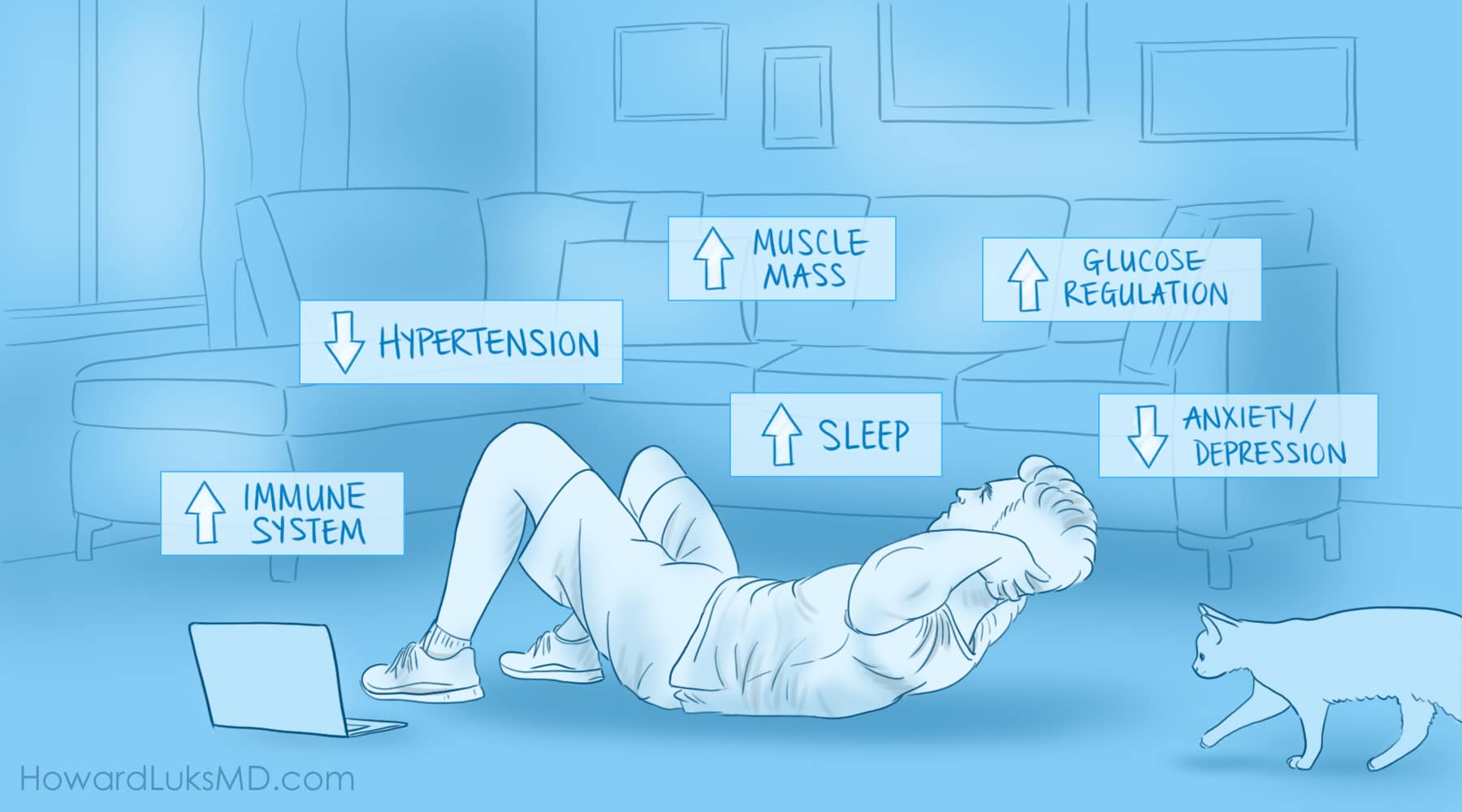

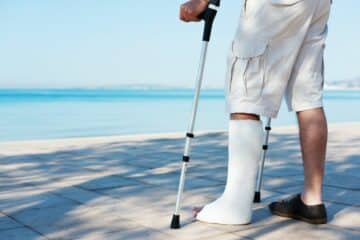
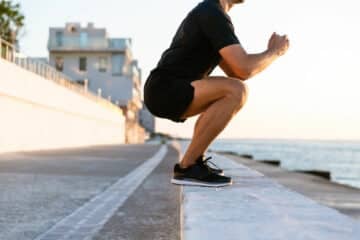
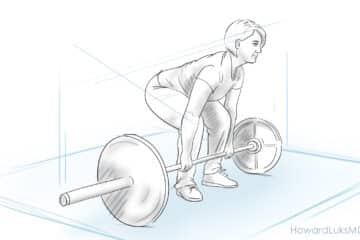









kenta sugimura
Hallo , Dr Luks.
I am Japanese orthopedic doctor running a small clinic in Tokyo.
I read your interesting articles and learned a lot.
People are staying home like your country for several weeks and some want to do exercise bored.
I have been seeing some injured patients caused by exercise .
One fell down playing badminton in a park with her family and then was injured wrist fracture ,another twisted her ankle playing table tennis in her home and then she fractured her ankle and more….
I named these type of injury ” Corona fracture ” .
I hope you are safe and give us helpful knowledge.
Thank you.
Ah.. very interesting Kenta-san….
I lived in Japan in 1990-91. We had a wonderful time. We worked at Tokai University Hospital in Isehara …
I hope you stay safe during these times!
Howard Luks